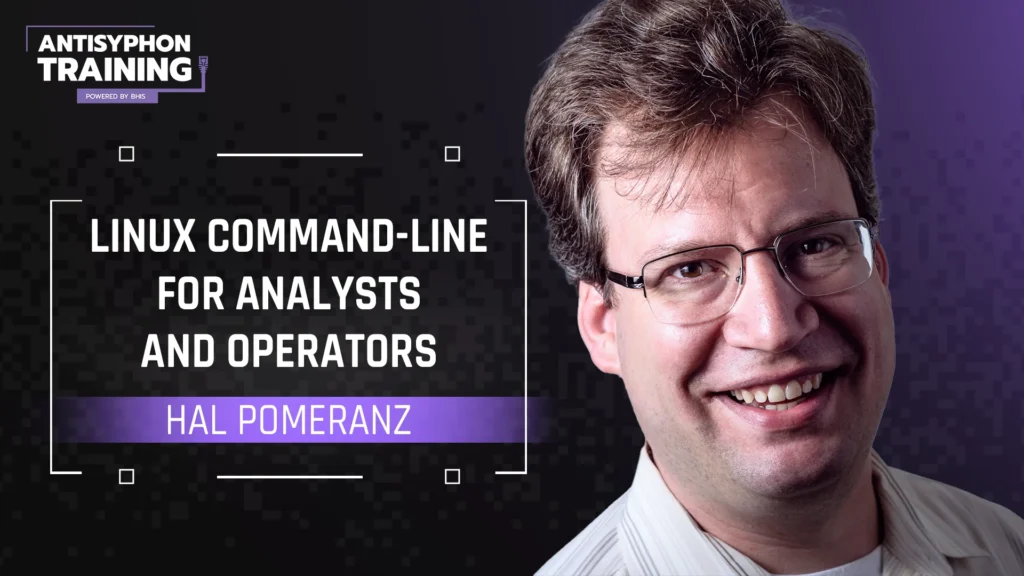
In this course you will learn the fundamentals of the Linux command-line and leave this course with the materials you need to continue on your Linux journey.
On-Demand $575.00
Course Length: 16 Hours
Includes a Certificate of Completion
Next scheduled date:
Notify me when available

On-Demand
Antisyphon's On-Demand classes give you flexible, self-paced access to the same high-quality training our live events are known for. Whether you're diving into forensics, cloud security, or offensive tooling, each course includes:
- Full access to video recordings, slides, and downloadable resources
- Hands-on labs and virtual machines to reinforce real-world skills
- Cyber Range access for immersive practice (select courses)
- Dedicated Discord support from instructors and peers
- Certificates of participation upon completion
Start learning when it works for you!
No deadlines, no pressure. Just real, practical cybersecurity training on your schedule.

